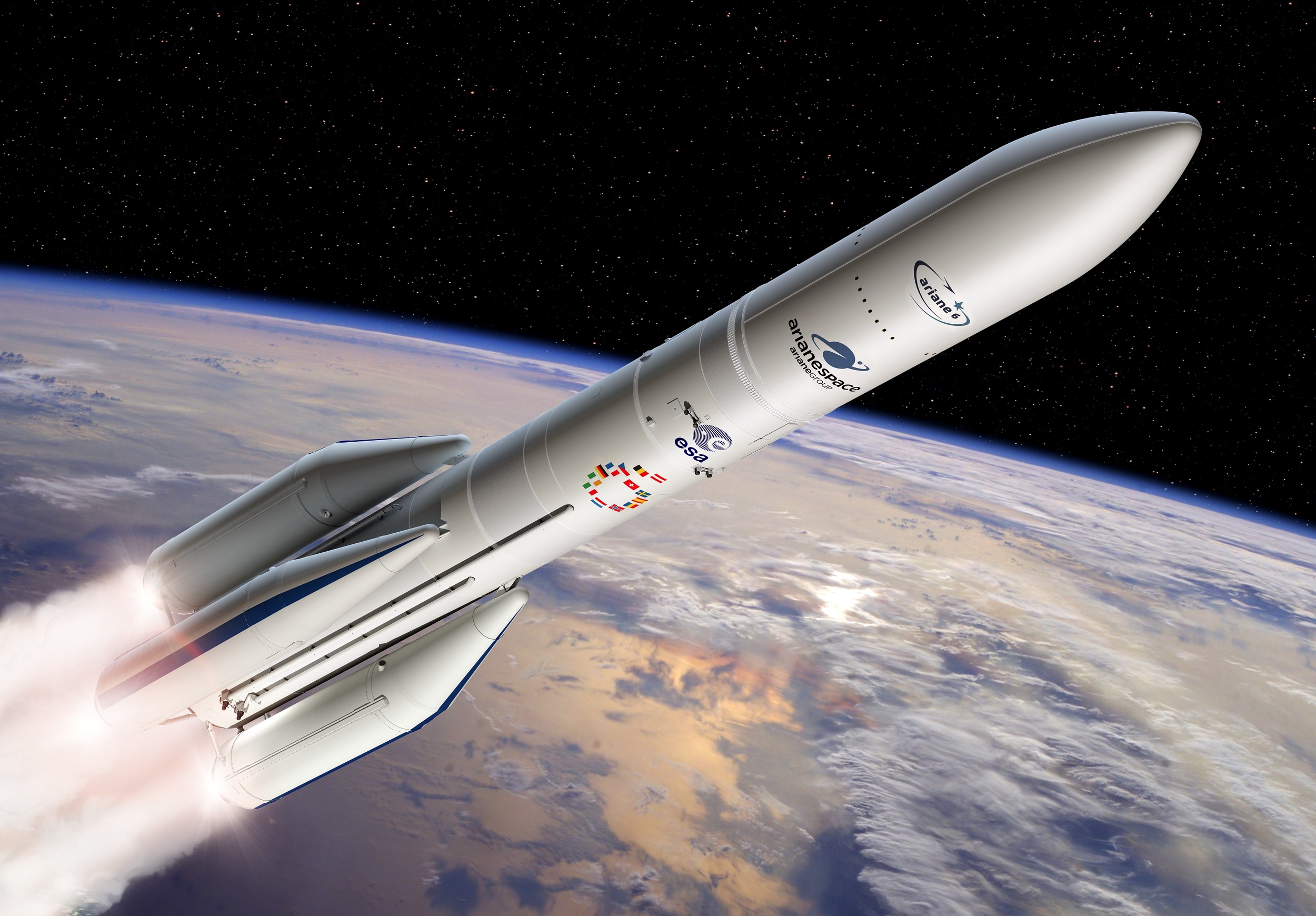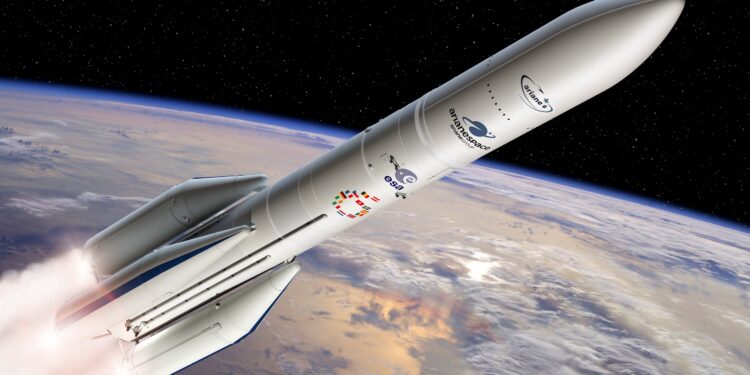
WASHINGTON — Arianespace has confirmed that the first flight of the more powerful version of the Ariane 6 rocket has been delayed until next year.
The company announced Oct. 16 that the fourth and final Ariane 6 launch of 2025 will carry a pair of Galileo navigation satellites. Like the previous missions this year, that launch will use the Ariane 62, the version of the rocket equipped with two solid rocket boosters.
Arianespace did not disclose a launch date, saying it will be announced about a month before liftoff. The next Ariane 6 launch, of the Sentinel-1D radar imaging satellite for the Copernicus Earth observation program, is scheduled for Nov. 4, also using an Ariane 62.
That schedule means the debut of the Ariane 64, which features four solid rocket boosters, will slip into 2026. Arianespace said the first Ariane 64 mission will carry a batch of Project Kuiper broadband satellites for Amazon.
For much of this year, Arianespace had planned to conduct five Ariane 6 launches in 2025, including the Ariane 64’s inaugural flight. That version is critical because it will be used for Amazon’s Kuiper launches, the largest commercial customer in Arianespace’s manifest.
At World Space Business Week in September, Arianespace Chief Executive David Cavaillolès said the company now expected to complete only two more launches this year after successful Ariane 6 missions in March and August. He declined to confirm whether either would use the Ariane 64.
“What I can share is that the development of Ariane 64 is going in the right direction,” he said during a panel discussion. “Next year we’ll have quite a lot of Ariane 64. We see, talking to customers, that this is a product that is highly relevant.”
In a separate briefing with reporters, Cavaillolès said the company was at the “very end” of the Ariane 64 development phase, finalizing parameters for the new vehicle. “At this moment, we don’t foresee difficulty. This is just demonstrating the flightworthiness of the launcher,” he said.
“In a couple of months, we’ll launch the first Ariane 64, and next year we’ll have a good mix between 62 and 64,” he added. At the time, he said Arianespace was still weighing whether the year’s final launch would be the Galileo mission or the Kuiper mission.
He said going from five to four launches this year was not a setback. “What matters is not that we do one less. What matters is that we confirmed four,“ he explained. “A lot of people, still some months ago, didn’t believe at all we could launch more than two or maybe three times this year.“
Cavaillolès said Arianespace expects to “more or less double” its launch rate in 2026 to about eight missions.
“For the moment, we are really well positioned,” he said of that planned increase in launches, which he argued would be the “fastest ever” for a large rocket.
